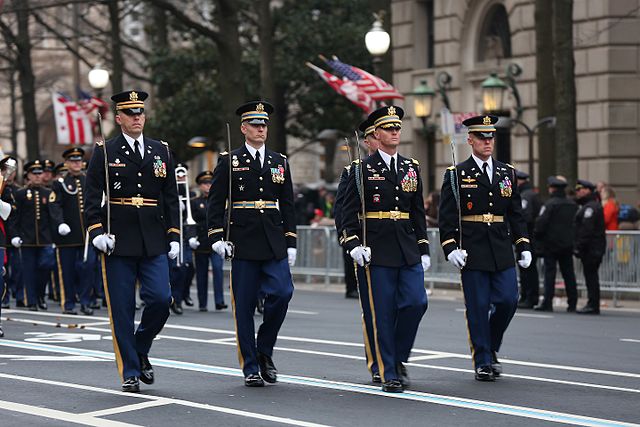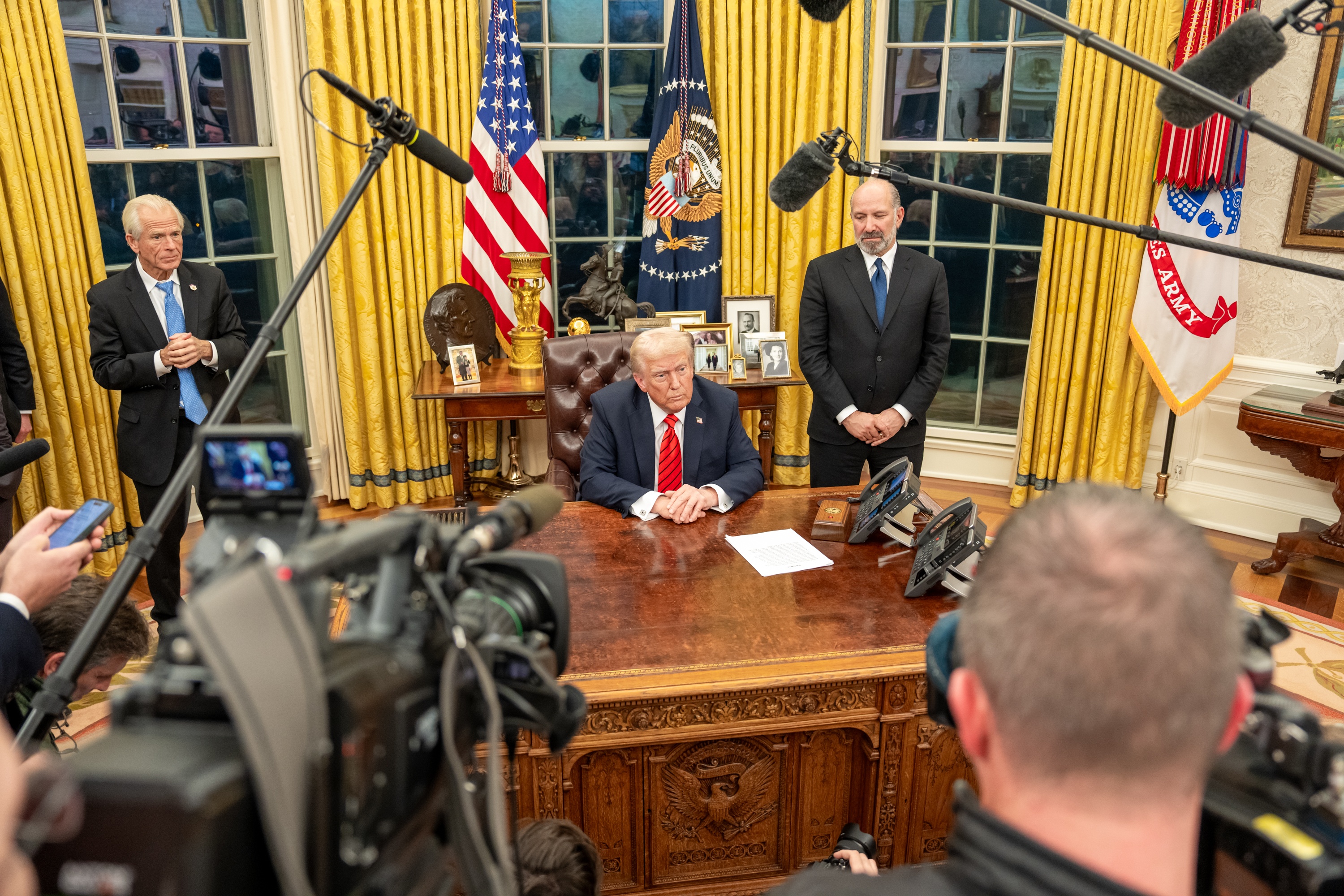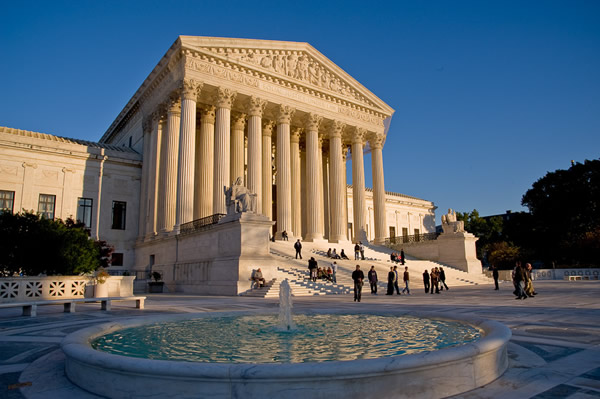The Demagogue as President: Speech, Action and the Big Parade
We are constantly confronted with the question of how seriously to take the president’s words. By one interpretation, not so much: His verbal excesses and outrages should not be confused with action. This is the variant of the old counsel “watch what we do, not what we say.” President Trump said he would revisit the libel laws but didn’t; he did not file the threatened lawsuit to stop publication of “Fire and Fury.” He has attacked the courts, but his administration has complied with their orders.

Published by The Lawfare Institute
in Cooperation With

We are constantly confronted with the question of how seriously to take the president’s words. By one interpretation, not so much: His verbal excesses and outrages should not be confused with action. This is the variant of the old counsel “watch what we do, not what we say.” President Trump said he would revisit the libel laws but didn’t; he did not file the threatened lawsuit to stop publication of “Fire and Fury.” He has attacked the courts, but his administration has complied with their orders. In a sober-minded warning against overreaction, Eric Posner suggests that observers take care to distinguish “bark” from “bite.” Likewise, in their recently published book, “How Democracies Die,” Steven Levitsky and Daniel Ziblatt warn strongly about the dangers of Donald Trump’s style of leadership but also fall back on the distinction between words and actions, and between impulse and deed, in concluding that he has not yet “crossed the line” into authoritarianism.
These and other commentators agree that the president’s words could be intended to prepare the way for bad actions to follow. He weakens norms and undermines institutions and, over time, he may take action made by possible by the damage he caused with his words. But until then, he has only barked, and the occasion to respond will arise only when he has bitten. This is the basis for Ross Douthat’s insistence that Trump, as demagogue, has been “contained” by a Republican Party—at least in the Senate—unwilling to help execute on his demagogic claims. Worries about the president’s words, Douthat writes, are “based on things that haven’t happened yet.”
This word/action distinction holds up to a point, but it is overstated and may serve to confuse rather clarify the deep problems with the Trump presidency. Recent events have brought a key example: The New York Times reports that the president’s lawyers are advising him to decline an interview with the special counsel, while Trump keeps up his attacks on the Russia “hoax” and “witch hunt.” The president’s words on this subject have accumulated a force that transcends mere bluster; they constitute the first of a series of actions potentially leading to the denial of a president’s testimony in a major law-enforcement investigation. Separating word from action in this context is difficult—in part because what Trump is saying and what he is doing are not easily distinguishable.
The reason Trump and his lawyers would truthfully give for refusing an interview is one that he will not rely on: his Fifth Amendment right not to incriminate himself. He has resorted to this protection in private legal battles in the past. In public matters, he has taken a sharply different position. Commenting on witnesses who invoked this right in the Clinton email investigation, Trump has asserted that “The mob takes the Fifth.” He then took the next rhetorical step in asking: “If you’re innocent, why are you taking the Fifth Amendment?” He is now securely in a trap partly of his own making. It is not uncommon, if unfair, that witnesses who take the Fifth invariably face suspicion that it is a virtual admission of guilt. Trump’s emphatic remarks on the subject leave him especially defenseless on this score.
Trump seems to have been previewing for months an alternative explanation for denying an interview. He would have the public understand that the Department of Justice and the FBI are corrupt and, politicized to the core, plotting against him. He intimates in this fashion thatthe Mueller investigation is illegitimate. Why then, he would ask, should a president agree to cooperate with, much dignify, an illegitimate inquiry? Senior aides appear to be helping him build this case, chiming in with references to Special Counsel Robert Mueller’s “conflicts.”
These are not merely words. They are the official position that this president has developed systematically over a year to preserve the option of limiting his cooperation with law enforcement. On Tuesday, White House Press Secretary Sarah Huckabee Sanders stood firmly behind this story line. The memo prepared by House intelligence committee Chairman Devin Nunes, she told the press corps, vindicated the president’s judgment that the Mueller investigation was a politically motivated “witch hunt.” This is not a case of the president speaking off the cuff. It is the position of the White House.
Professor Posner has suggested that, while troubling, this kind of verbal posturing is not action, only preparing the way for it:
Trump is trying to lay the groundwork for an attack on our institutions at a politically opportune moment. He might think that if he damages the prestige of the courts, he can defy the Supreme Court if it ultimately rules against the travel ban. Or that if he gets everyone to hate the media, he will be able to prosecute journalists.
But in “laying the groundwork for an attack on our institutions at a politically opportune moment,” Trump is doing something more than simply tossing words into thin air. He is actively fashioning that “moment” and making it possible. Whether purposely or by instinct,he is acting now to reap the benefits later.
Trump has somewhat varied this message about the special counsel investigation, sometimes seeming to welcome an interview with Mueller while, at other times, questioning why it would be necessary and leaving his intent to cooperate in question. But his public comments and tweets have been most consistently marked by hostility toward what he has characterized as the “greatest Witch Hunt in American history.”
Granted, a president is entitled to make his case about the Russia investigation, or the unfairness of the media, or the leftward tilt he sees in the courts. There is indeed a difference between attacking a court and defying it. Faced with an investigation into his conduct, a typical president might reasonably resort to standard constitutional or legal arguments and seek to persuade the public that, in refusing cooperation, he is responsibly protecting the constitutional prerogatives of his office. He might well add his complaints about his opposition’s political motives—without the demagogic resort to gross exaggerations or lies. In the end, however, he would be directing the conflict into the normal channels for resolution. For example, courts would eventually decide whatever claim of Article II authority Trump may rely on to defend his firing of James Comey.
But this is the crucial point: How Donald Trump constructs his attacks makes all the difference. The practice of demagoguery, which defines the president’s leadership style, changes the rules of the democratic game. It savages any and all constitutional, institutional and as necessary legal limits the leader deems inconsistent with the pursuit of personal interests and self-aggrandizement. It works to make the abandonment of these limits plausible now to the audience he is trying to reach. In the service of its goals, demagoguery features extreme appeals and—critically—a reckless indifference to the facts, even outright lies.
The “moment” Trump seems to be striving for cannot arrive and serve his purposes unless he builds toward it with his speech. He is creating conditions now to support further action later; but the creation of those conditions, though by words, is itself an activity. If later Trump refuses Mueller an interview, supported by the groundwork previously laid, it will be correct to say that the move depended on what he did to set the stage. In other words, Trump is seeking to accomplish something with his demagoguery.
The Founders understood that demagoguery was not an idle matter of mere words. As the political scientist Jeffrey Tulis has written, their concern with demagoguery was one of the “core issues behind the practical structural decisions for the national government and the place of the presidency in it.” Those structures have, of course, undergone radical change and the safeguards originally erected against the demagogue have withered. But it does not follow that because the protections have begun to fail, we should be less troubled by the pathology they were intended to defend against. The word/action distinction operates to make it less likely that we will take the pathology seriously—until “things have happened.”
Demagoguery as the defining feature of political leadership is very much happening. As Tulis has stressed, “rhetorical power is a very special case of executive power … it is a power itself.” So it is a mistake to dismiss demagogic practice on the grounds that it is pure speech that, even if regrettable, can be otherwise disregarded until the occurrence of some related “action.”
Demagoguery’s dangers include the routine conflation of what best serves the public with what personally suits the leader. This can be seen in Trump’s efforts to stymie the Mueller investigation. If Trump were to simply deny an interview to Mueller on a Fifth Amendment claim, it would be clear that he was acting in his own best interests. But he is not admitting to that. Instead he is preparing to contend that he is taking the actions necessary to uphold constitutional limits and refuse to play the patsy for a “deep state” that is out to take him down. He is defending the legitimacy of his election and the rights of his voters against a “hoax” fabricated by his political opponents. He has set himself up to claim that he is not saving himself; he is saving the Republic.
Trump has not only turned his words against Mueller and law enforcement. At the same Tuesday press conference, Sarah Huckabee Sanders stood squarely behind another of the president’s demagogic attacks—the “treason” exhibited by Democrats who did not applaud the accomplishments touted in the president’s State of the Union address. In an apparently prepared bit, she challenged Democrats to decide whether they “hated the president more than they love their country.” Far from being mere words, these are efforts to rob the president’s critics of legitimacy, but, this time, his target is the opposition party, not the special counsel. Is Trump looking ahead to a fight over the firing of Mueller and fortifying his defense by attempting to disqualify dissident congressional Democrats as traitors? Perhaps, too, he is building those same defenses against an impeachment inquiry in a House that the Democrats may control next year.
It is hard, then, in this demagogic presidency, to distinguish words from actions, somehow making allowances for the former and worrying only about the latter. It will also happen that the demagogue who, in Brian Klaas’s words, is an “opportunistic showman” will vary his forms of expression. Consider the president’s reported desire to arrange for a mammoth parade of tanks and troops through downtown Washington. The president would not be ordering military action. He would be putting on a show. The troops file by and salute him; he returns the salute. Is this spectacle a presidential action, or a mode of communication, or both?
In the immediate future, responsible institutions and individuals must make decisions about taking a stand. If the president cites corrupt law enforcement in declining an interview or in firing Mueller outright, Congress and the individuals in senior executive-branch positions will have to decide whether and how to respond—to enable and support the president, or to speak out or act in opposition. For political appointees within government, resignation is an option. For Congress, the choices include the initiation of impeachment inquiries. The time will also have come to hear from organized bar and other civil society institutions.
It would be wrong to think that elected and other officials, and civil society leadership, have plenty of time to think about their choices, until the time when Trump is not “just talking” but finally “does something.” He is already in the middle of doing something.





